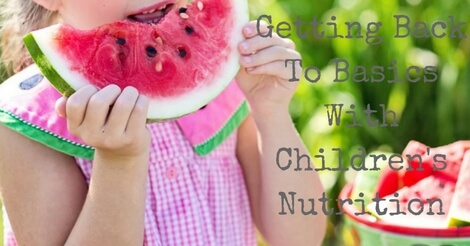
My name is Rosita Bird and I am a British children’s author specializing in topics such as healthy eating, mental health, autism and other safeguarding issues. I am also a mother of 2, grandmother of 3 and have been a childminder for 15 years.
As a child with poor eating habits, I had problems with texture and taste in foods, which led to anaemia and later resulted in fertility issues, this was overcome with treatment.
I also lost a baby that was anencephalic. I later went on to develop a serious mental health problem and was diagnosed with an underactive thyroid. There is constant research being done that looks into the links between diet and mental health. In fact, lack of Iodine has been proven to be linked to hypothyrodism.
My immune system was compromised as a child as well. I have seen a variety of different types of parenting and faced many challenges with food. Once children are exposed to food that is high in sugar, salt and fat it is difficult to reverse.
Today’s parents are under extreme pressure, many balancing being a parent with having to work. Parents are bombarded with so much information, as well as having to attain targets on child development and then resist the temptation of foods on a grand scale. In addition, so many foods contain additives and many foods are so processed that many naturally occuring nutrients are removed in the process. All of this makes it difficult for parents to really work on encouraging healthy eating and focusing on whole foods.
♥ You May Also Like: Why Mom Was Right About Family Mealtimes! ♥
It all starts with breast feeding and the pressure put on mums now through health visitors, books and advice from various sources. There has been a lot of research on this and it seems the jury is still out. Some clinical trials claim to have proven that breast is best. Because there are so many other environmental factors, poverty, birth weight, the health of the mother, and genetics it is difficult to prove conclusively.
Although advice is to breast feed, it does not mean that every mother can, and this is where sometimes it can go wrong. Some mothers have struggled under pressure and have undernourished babies that are not thriving as they should. It is common sense that if a baby is not developing and putting on weight then it is best the baby goes onto the bottle. It is a case of common sense and going with your instinct.
Once a child moves to pureed foods, my advice is fresh every time.
When a child is ready to go to solids this is when it can be awkward if they do not like certain textures, or tastes as to what they like or dislike. Frustration sets in with frequent battles over food and this is when processed foods are sometimes introduced into a child’s diet. Childhood obesity and diabetes have become quite a challenge and continue to rise in developed countries. The rise in such conditions has been attributed to a poor diet lacking in essential vitamins, minerals, proteins, etc.
By avoiding an early introduction to foods high in salt, fat and sugar we may possibly be able to begin to slow down or reverse conditions related to poor diets such as obesity and diabetes.
If you have a picky eater, check out these books written by Rosita Bird
To connect with Rosita or see a complete listing of her published books follow the links below:





